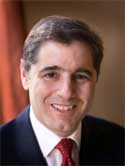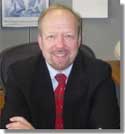Chloe Goins vows to fight on in civil court after prosecutors refuse to charge the beleaguered actor for an assault that allegedly occurred at the Playboy Mansion in 2008.
The 78-year-old comedian was told Thursday that no charges would be brought against him in Los Angeles for the alleged assault on Chloe Goins. He was also told he would not be charged for another alleged attack of a 17-year-old in 1965.
Telling the Daily Mail Online that she was ‘devastated,’ Goins said she was determined to fight him in court.
“I’ve not given up yet,” she told the website.
LA Co. DA is NOT prosecuting #BillCosby for alleged '08 Playboy Mansion Chloe Goins assault. Cosby was in NY at time pic.twitter.com/xW1EodYDUy
— Elex Michaelson (@abc7elex) January 6, 2016
Chloe Goins claims she she met Bill Cosby at the Playboy Mansion when she was 18 and a Las Vegas dancer. She told prosecutors he gave her a drink and she awoke to find him biting her toes with his pants around his ankles
The District Attorney pointed out a number of problems with Goins’ claim, starting with the fact that Goins was not certain of the night the assault had happened at the Mansion in the summer of 2008.
Bill Cosby accuser Chloe Goins disappointed with latest ruling out of Los Angeles.
https://t.co/WBJrvA6UB5 pic.twitter.com/ZUZ0ooyFfZ
— WPEC CBS12 News (@CBS12) January 6, 2016
Prosecutors said no charges would be brought against Cosby because he was in New York on the date that she had originally said she believed the attack to have taken place at the Playboy Mansion. There was also no footage of either Goins or Cosby outside the party from video studied by the investigators in the case and guest lists show that Cosby only visited the mansion on one occasion in February of that year.
But Chloe Gains stands by her claim.
“Bill Cosby sexually assaulted me at the Playboy mansion in 2008. I’m grateful to the LAPD for conducting an investigation, but I am devastated by this decision,” she said. “But while I’m disappointed that there won’t be any criminal charges, I believe we still have a chance in the civil court. I’ve not given up yet.”
Does your company/product/event need a #BOOST in the awareness Dept? Chloe Goins #available now for Meet & Greets!! pic.twitter.com/MCVihfA1Yw
— Gotcha Back Mgmt (@GotchaBackMgmt) November 17, 2015
In a statement Goins’ lawyer Spencer Kuvin said the news “is a disappointment” and said that her legal team is standing by her claims.
“However, we recognize that the bar for criminal prosecution, which is proving guilt beyond a reasonable doubt, is extremely high. We nonetheless commend the efforts of the LAPD and the District Attorney’s office with respect to their criminal investigation,” he said.
“This criminal investigation did reveal some very important evidence. Most importantly, it uncovered documentary proof that Mr. Cosby was at the Playboy Mansion in early 2008, a time when Ms. Goins was under eighteen years old,” he said. “The decision by the District Attorney’s office to decline criminal prosecution of Bill Cosby for the sexual assault of Chloe Goins in no way affects Ms. Goins’ civil lawsuit against Cosby, which is proceeding.”
 "The FCC’s consumer survey provides an important snapshot of the real-world experiences of mobile customers," said FCC Chairman Julius Genachowski.
"The FCC’s consumer survey provides an important snapshot of the real-world experiences of mobile customers," said FCC Chairman Julius Genachowski. 
 "We are hearing from consumers about unpleasant surprises on their bills," said Joel Gurin, Chief of the
"We are hearing from consumers about unpleasant surprises on their bills," said Joel Gurin, Chief of the